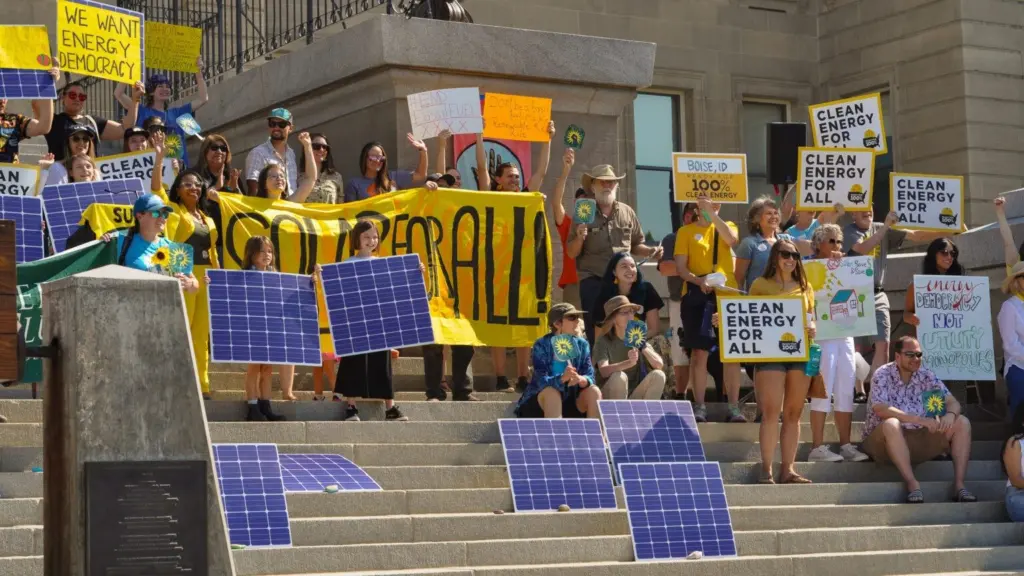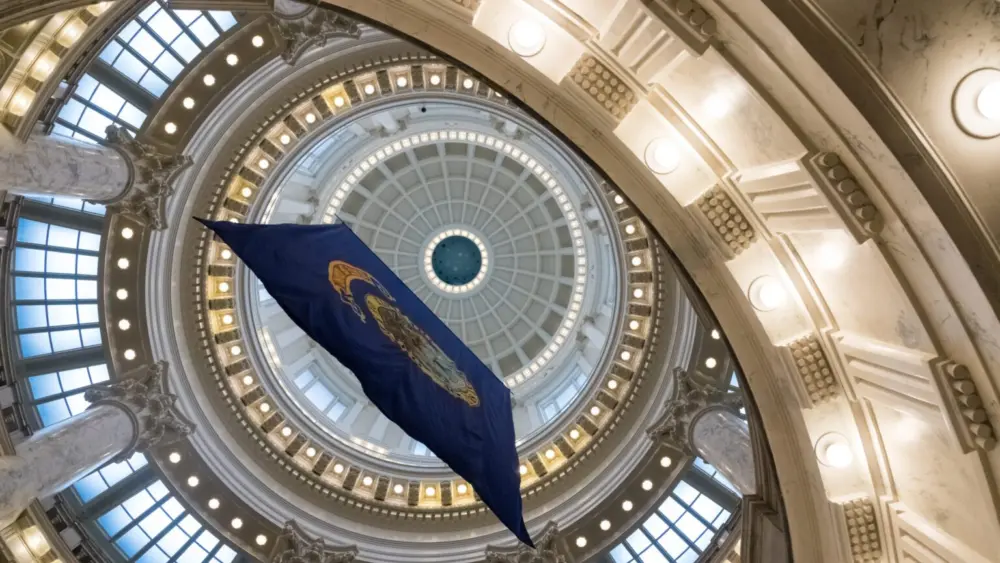BOISE, ID – Solar panel advocates have filed a petition for reconsideration asking the Idaho Public Utilities Commission to resolve their concerns over a decrease in reimbursement rates that Idaho Power pays to customers who generate their own electricity through rooftop solar panel systems.
In a press release issued last week, the groups Vote Solar and the Sierra Club announced that they filed the petition and have asked the Idaho Public Utilities Commission, or PUC, to create a working group to review the fairness of solar reimbursement rates before the next scheduled review in 2028.
“The PUC acknowledged that the Export Credit Rates are unreasonable and volatile, which is why they chose to limit this year’s changes and delay the next change until 2028,“ Lisa Young, Sierra Club Idaho Chapter director, said in a written statement. “But this is just a temporary Band-Aid. We need to come together to make real improvements to the methodology. Otherwise, communities in Idaho will face the same problem all over again in 2028.”
On Sept. 30, the Idaho Public Utilities Commission approved new, decreased reimbursements rates, which are called export credit rates, that Idaho Power pays its rooftop solar customers, the Idaho Capital Sun previously reported.
The decreased solar power reimbursement rates apply to more than 14,000 Idaho Power customers who have rooftop solar systems or other on-site generation systems that were installed prior to Dec. 20, 2020. Idaho Power customers who had their solar systems installed prior to Dec. 20, 2020, are not subject to the decreased reimbursement rates because they are considered legacy customers and grandfathered in, officials said.
Aside from rooftop solar panel systems, other types of on-site generation systems include wind systems, but solar systems are the most common.
Idaho Power had applied to reduce solar reimbursement rates even further, but the utilities commission approved a smaller decrease after expressing concerns about the impact the change would have on solar customers.
“The commission recognized that all customers have faced increases to their average monthly bills over the past 18 months, and the proposed update to the (export credit rate) would further affect customers in Schedules 6, 8 and 84,” the utilities commission said in a news release issued Oct. 2.
The commission is charged with regulating investor-owned utility companies that provide electricity, gas, water and some telephone services for a profit, according to the commission’s website. Examples of utilities the commission regulates include Idaho Power, Rocky Mountain Power and Intermountain Gas.
Why did Idaho Power want to decrease solar power reimbursement rates?
In an interview in October, Idaho Power officials said they request the decrease in reimbursement rates for their rooftop solar customers to more accurately reflect energy costs and avoid overcompensating customers who generate their own energy through rooftop solar systems.
Company spokesman Jordan Rodriguez told the Idaho Capital Sun that Idaho Power originally reimbursed its solar customers with the same retail rate that other customers paid on the electric bills. But Rodriguez said the original reimbursement rates did not take into account expenses that Idaho Power has to provide electricity, such as operating and maintaining the electrical grid and employing staff.
“When some customers are being overcompensated with the full retail rate credit, the difference is made up by the rest of our customers, 98% of which do not have rooftop solar or other on-site generation,” Rodriguez said earlier in October.
Solar advocates who are asking for the Idaho Public Utilities Commission to review the fairness of solar reimbursement rates prior to 2028 say it is unfair to customers invested in solar panel systems to keep changing the reimbursement rates they are given.
“Families in Idaho turn to rooftop solar to gain stability and independence from unpredictable and ever-rising utility costs,” Kate Bowman, Vote Solar’s Interior West senior regulatory director, said in a written statement. “Unfortunately, the current solar export rate structure undermines that stability — it’s designed to change from year to year and is biased toward utility profits, leaving solar customers exposed to unpredictable energy bills and unfair compensation rates.”
Idaho Capital Sun is part of States Newsroom, a nonprofit news network supported by grants and a coalition of donors as a 501c(3) public charity. Idaho Capital Sun maintains editorial independence. Contact Editor Christina Lords for questions: info@idahocapitalsun.com.





